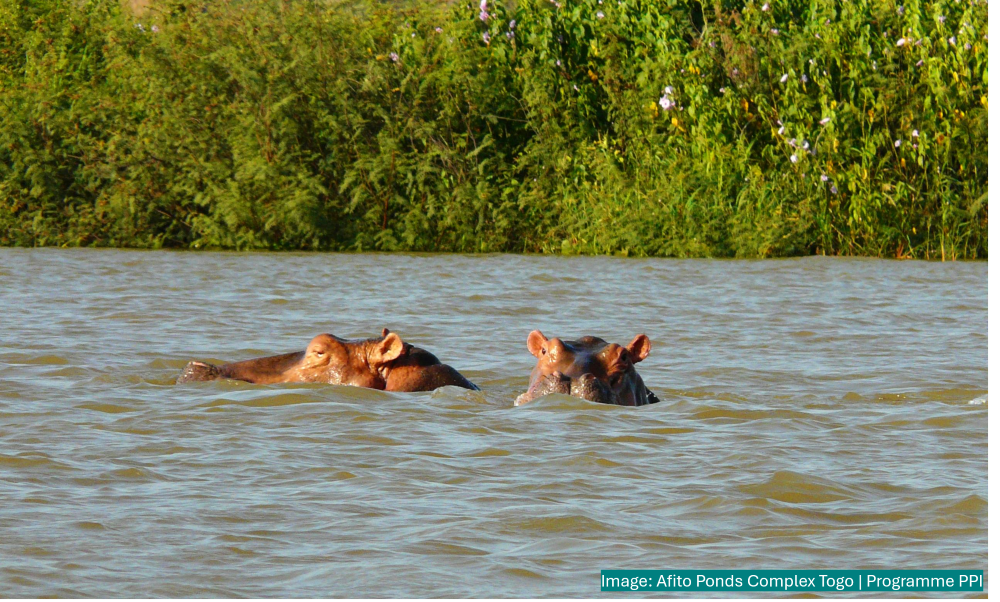News |
Balancing Nature: How Togo’s WACA Project is Protecting Farmers and Endangered Hippos
To mitigate conflicts between humans and hippos, the West Africa Coastal Areas (WACA) Resilience Investment Project (ResIP) in Togo has developed a novel solution: creating seven hectares of grazing land around the Afito marshes in the Sédomé region, with high biodiversity value. Planting with vegetation such as Ipomea aquatica and Sporobolus pyramidalis, these grazing areas have provided hippos with sufficient food, keeping them away from nearby villages and protecting farmers' fields.
This initiative has significantly improved local safety and helped preserve crops. Over the past three years, the new grazing areas have significantly reduced human-hippo conflicts, offering a sustainable coexistence model. The project has rehabilitated four of the region's five marshes—Afi, Lagouè, Lotoè, and Dindin—offering environmental and social benefits.
In addition to these conservation efforts, the project is seen as a promising boost for ecotourism and research. According to a local NGO, around sixty hippos reside in the area. These hippos are listed as vulnerable species under the CITES agreement, to which Togo has been a signatory since 1978.
Beyond wildlife conservation, WACA has implemented a multifunctional platform to improve the community's living conditions. The platform supplies electricity to the village and powers essential tools, including mills, machete sharpeners, a well, and phone charging stations, further enhancing the project's impact on the environment and the local population.
